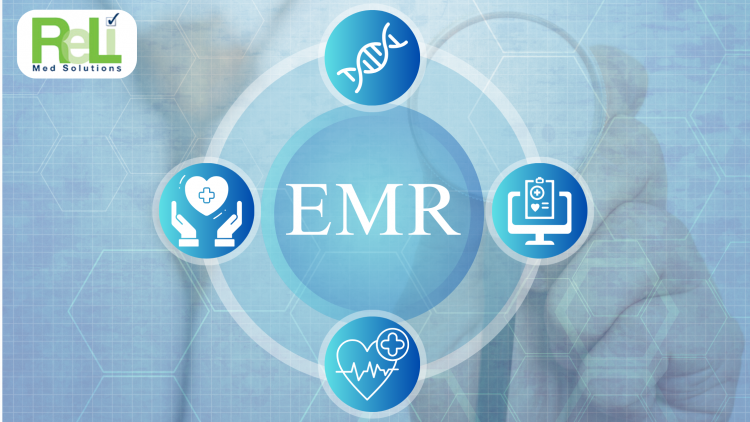Electronic Medical Records and Adverse Drug Interactions: How EMRs Support Physicians
Electronic Medical Records: Enhancing Patient Care
Electronic Medical Records (EMRs) have significantly transformed healthcare by modernizing how patient data is managed. These digital systems have not only reduced the reliance on traditional paper-based records but also streamlined medical processes, making healthcare more efficient. Today, EMRs play a critical role in managing patient information, reducing administrative tasks, and improving the quality of care. One of their most important functions is minimizing adverse drug interactions, thereby enhancing patient safety.
How EMRs Help Avoid Adverse Drug Interactions?
Adverse drug interactions occur when one medication affects the action of another, leading to unintended and often harmful side effects. These interactions can cause allergic reactions, reduce the effectiveness of medications, or result in severe health complications. For instance, mixing blood thinners with certain pain relievers can cause internal bleeding. As healthcare becomes more complex, the risk of such interactions increases. This makes it essential for healthcare providers to have accurate, up-to-date records to monitor patients’ medications. EMRs address this concern by keeping comprehensive and accessible records, enabling physicians to prevent harmful drug combinations.
Electronic Prescribing: A Safer Medication Process
Electronic prescribing (eRx) is a crucial feature of EMRs that significantly enhances patient safety. By allowing doctors to send prescriptions directly to pharmacies, eRx eliminates errors caused by illegible handwriting or incorrect dosages. This digital process reduces the likelihood of mistakes and ensures that patients receive the correct medication. More importantly, eRx systems integrated with Electronic Health Records (EHR) can automatically check for potential drug interactions. They issue alerts for dangerous combinations and suggest safer alternatives. This proactive approach makes prescribing safer and more effective, directly reducing the chances of adverse drug interactions.
How EMRs Help Physicians Monitor and Manage Adverse Drug Interactions
EMRs provide a centralized system where physicians can access a patient’s entire medical history, including details of past and current medications. This comprehensive view allows healthcare providers to quickly identify potential drug interactions. When a physician prescribes a new medication, the EMR system can immediately flag any possible conflicts with existing drugs. These alerts help doctors make informed decisions, whether it’s about prescribing alternative medications or adjusting dosages. By offering real-time insights, EMRs enhance patient safety and improve the overall quality of care.
EMRs Enhance Healthcare Provider Communication
EMRs facilitate better communication between healthcare providers, including doctors, pharmacists, and specialists. By providing a shared platform, Electronic Medical Records ensure that everyone involved in a patient’s care has access to the same information. This transparency reduces the risk of conflicting prescriptions and enhances patient management. The future of EMRs looks promising, with advancements in technology continually improving their functionality.
Choosing the Right EMR Solution
Selecting the right EMR system is vital for healthcare providers aiming to manage adverse drug interactions effectively. A reliable Electronic Medical Record solution enhances patient care, reduces the risk of medication errors, and streamlines healthcare operations. Practice Management becomes more efficient when the right tools are in place. ReLi Med Solutions offers state-of-the-art EMR systems that support healthcare providers in improving patient safety and operational efficiency. By choosing ReLi Med Solutions, healthcare professionals can ensure they provide the highest standard of care. They can effectively use tools like eRx, Patient Portals, and other integrated features to enhance their practice and improve patient outcomes.
EMRs are indispensable in modern healthcare. They play a crucial role in minimizing adverse drug interactions, enhancing patient safety, and improving the overall quality of care. With advancements in technology, the future of healthcare looks bright, promising even more innovative ways to protect patient health and optimize healthcare delivery.

